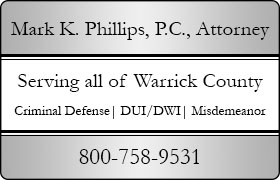Elberfeld Felony Lawyer, Indiana
Sponsored Law Firm
-
 x
x

Click For More Info:
-
Law Offices of Mark K. Phillips
114 South Third Street P.O. Box 427 Boonville, IN 47601» view mapDUI-DWI, Criminal Defense, Personal Injury Top Rated Indiana DUI Defense Lawyer
I offer passionate, loyal and fierce representation. I have over 20 years of experience to fight your Indiana DUI charge. I offer a free, initial consultation.
800-291-416 -
- Contact
- Free Consultation
- Visit:
- Website
- Profile
Not enough matches for Elberfeld Felony lawyer.
Below are all Elberfeld Criminal lawyers.
Mark Kelly Phillips
✓ VERIFIEDI am the proud father of three wonderful young men, two of whom are now in practice with me, and the youngest, who is a junior in high school, who hav... (more)
Bob Edward Zoss
✓ VERIFIEDRobert E. "Bob" Zoss Sr. was born and raised in South Bend, Ind. He is a 1967 graduate of Howe Military School, where he rose to the rank of cadet cap... (more)
Samuel Adam Long
Kimberly Ottilie
FREE CONSULTATION
CONTACT Mark K. Phillips Boonville,Indiana
Mark K. Phillips Boonville,Indiana About UsMark K. Phillips
About UsMark K. Phillips Contact UsCall or Email Now
Contact UsCall or Email Now


